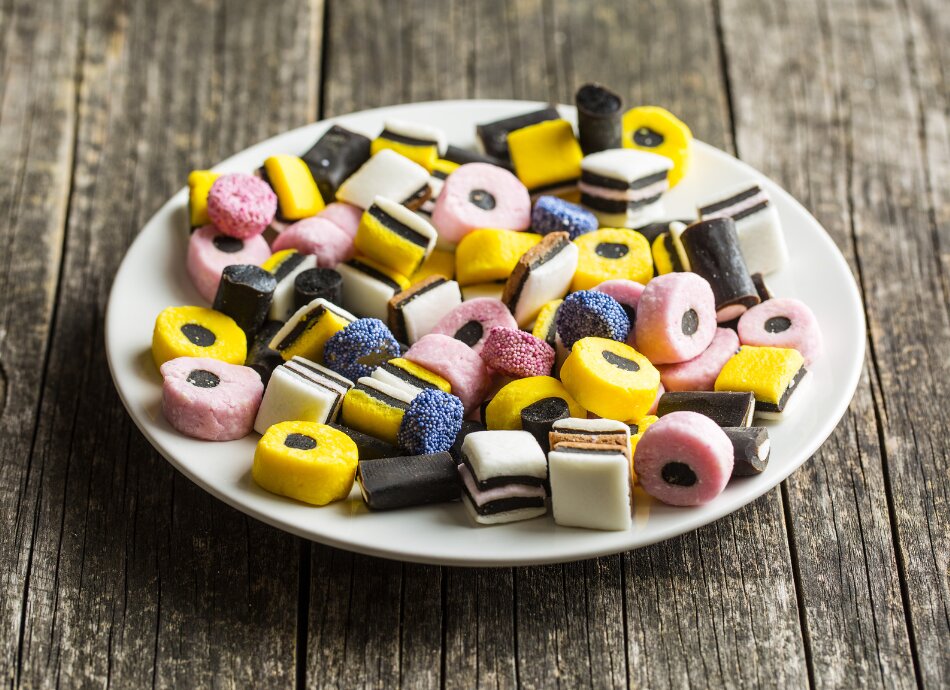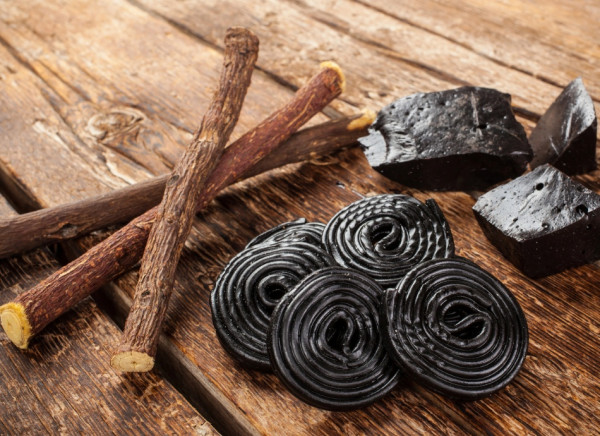You can now add Healthify as a preferred source on Google. Click here to see us when you search Google.
Can liquorice be bad for you?
Key points about liquorice
- Liquorice extract is used as a sweetener and flavouring agent in some lollies, drinks and herbal teas. It's also available as a dietary supplement.
- Eating small amounts now and again is safe for most people, but it may be harmful in large amounts or in combination with some medicines.
- Liquorice can cause low potassium in your blood, high blood pressure and abnormal heart rhythms.
- Side effects are more likely if you have high blood pressure, heart failure or kidney disease.
- If you've been consuming liquorice and have heart palpitations, muscle weakness or other health-related problems, stop eating it and seek medical advice.

Liquorice extract comes from the plant Glycyrrhiza glabra. Liquorice extract is used as a sweetener and as a flavouring agent in some lollies, drinks – including herbal teas – and it's also available as a dietary supplement.
 Image credit: Depositphotos
Image credit: Depositphotos
Liquorice extract, especially when consumed in large quantities, can cause side effects.
Glycyrrhizin in liquorice can increase blood pressure and cause the potassium levels in your body to fall. When that happens, you may experience abnormal heart rhythms, as well as high blood pressure, water retention and swelling (oedema), extreme tiredness and heart failure.
You're most at risk of side effects from liquorice and should avoid it if you have:
- high blood pressure, including high blood pressure during pregnancy
- heart failure
- kidney disease.
In general, a maximum of 100 mg/day of glycyrrhizin is recommended, which is about 60 to 70 g of liquorice sweets.
Liquorice can interact with some medicines used to treat high blood pressure or heart failure, such as:
- thiazide and loop diuretics (also called water pills)
- digoxin
- corticosteroids.
It can also interact with some herbal supplements and rongoā Māori, so check with your doctor or pharmacist if you have questions about possible interactions between liquorice and a medicine or supplement you're taking.
References
- Liquorice – all sorts of side effects and interactions(external link) Medsafe Prescriber Update, NZ, 2019
- Omar HR, Komarova I, El-Ghonemi M, et al. Licorice abuse: time to send a warning message.(external link) Ther Adv Endocrinol Metab. 2012;3(4):125–138
- Licorice root(external link) National Institutes of Health, US, 2020
- Can eating too much black liquorice be bad for you?(external link) NHS, UK, 2018
- Deutch MR, Grimm D, Wehland M, Infanger M, Krüger M. Bioactive candy – effects of licorice on the cardiovascular system(external link) Foods 2019 Oct 14;8(10):495.
Credits: Healthify editorial team. Healthify is brought to you by Health Navigator Charitable Trust.
Reviewed by: Stephanie Yee, Pharmacist, Auckland
Last reviewed:





